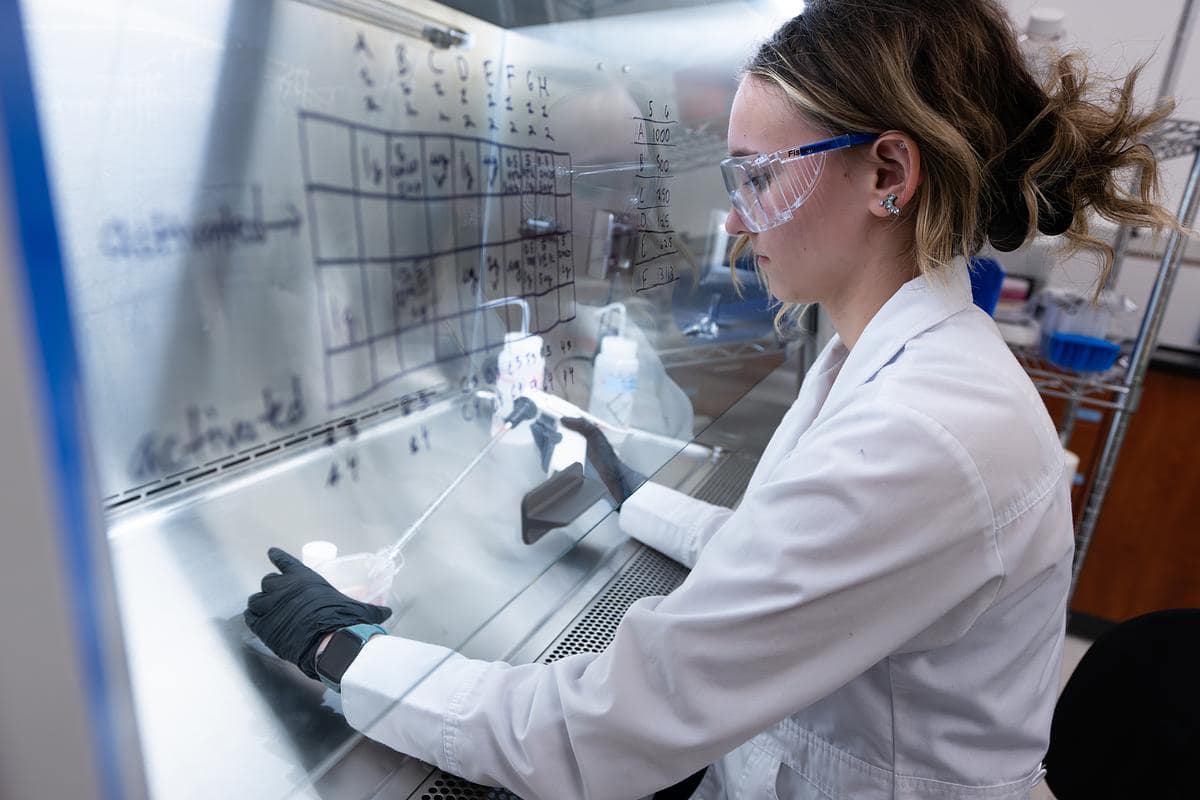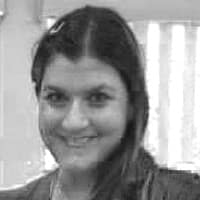Human Factors Student Presents Radiation Research on Global Stage

Embry-Riddle Aeronautical University graduate student Carol Mitchell admits to being both excited and nervous while traveling halfway around the world recently to present her research on cosmic radiation at the 74th International Astronautical Congress in Baku, Azerbaijan.
“It was an amazing, once-in-a-lifetime opportunity,” said Mitchell. “I was able to meet and talk to people from around the world about our research.”
She was chosen to present at the international conference after being named a finalist at the American Astronautical Society’s Wernher von Braun Memorial Symposium, held last fall at the University of Alabama, in Huntsville.
For Mitchell, who conducts research under the supervision of faculty mentor Dr. Amber M. Paul in Embry‑Riddle’s Omics Lab, this marked just the latest challenge she has taken on in her pursuit of a career in space and medicine. Mitchell’s research uses a systems-biology approach to assess the effects of cosmic radiation on the immune response and its connection to functioning adrenal glands in male versus female mice.
In addition to her work in the lab, Mitchell is simultaneously completing a master’s degree in Human Factors at Embry-Riddle, as well as a master’s degree in regenerative and stem cell technologies at Johns Hopkins University.
“I manage my workload with strict time management and discipline,” she said. “It is my motivation to get elsewhere and keep succeeding.”
Next on her list, she said, is to earn a doctorate, focusing on “regenerative medicine, immunology and space medicine.”
Building on a Dual Passion for Space and Science
Mitchell’s family currently lives in Clarksville, Tennessee, but most of her childhood was spent constantly moving around the U.S.
“I’m a military kid, so I moved around 21 times before my parents retired in Tennessee,” she said.
Her father served in the Judge Advocate General's (JAG) Corps, while her mother was an U.S. Army nurse and is now a nurse practitioner.
“I kind of grew up in the hospital with my mom taking us with her to work, so I had this love for science and medicine,” Mitchell said. “Plus, I have always loved space and wanted to be an astronaut. I never thought it could be possible to do both.”
That’s why she was thrilled when she found a major — Aerospace Physiology — that combined her interests at Embry-Riddle’s Daytona Beach Campus. After transferring to Embry-Riddle from Quinnipiac University, in Connecticut, Mitchell said she found a wealth of research opportunities that allowed her to excel in the field.
“I did not have those research opportunities previously, and I was nervous about being able to gain research experience,” said Mitchell. “But I was lucky that Dr. Paul took a risk on me and taught me all the skills I needed.”
“Carol is one of those students that any principal investigator would be fortunate to have,” said Paul. “She is hardworking, bright and a team leader. Her dedication to learning and passion for space biology was apparent early on in our initial conversations.”
Due to her exceptional engagement, Mitchell has been invited to participate in research with Paul on a NASA Space Biology mission that launched this November from Kennedy Space Center.
Mitchell also recently won the Physical & Liberal Sciences Graduate Student division at this year’s Astronautical Society’s Wernher von Braun Memorial Symposium, and she has been invited to next year’s 75th International Astronautical Congress in Milan, Italy.
“I am very proud of her accomplishments so far, and I’m certain this is only the beginning for her,” said Paul, who is the Wessel Endowed assistant professor of Aerospace Physiology and Immunology in Embry-Riddle’s Department of Human Factors and Behavioral Neurobiology.
Ultimately, Mitchell said it has been the hands-on, one-on-one experience she has gained with Paul in the Omics Lab that has allowed her to present her research half a world away.
“I have had opportunities here that I wouldn’t have at other universities,” said Mitchell.

 Melanie Stawicki Azam
Melanie Stawicki Azam